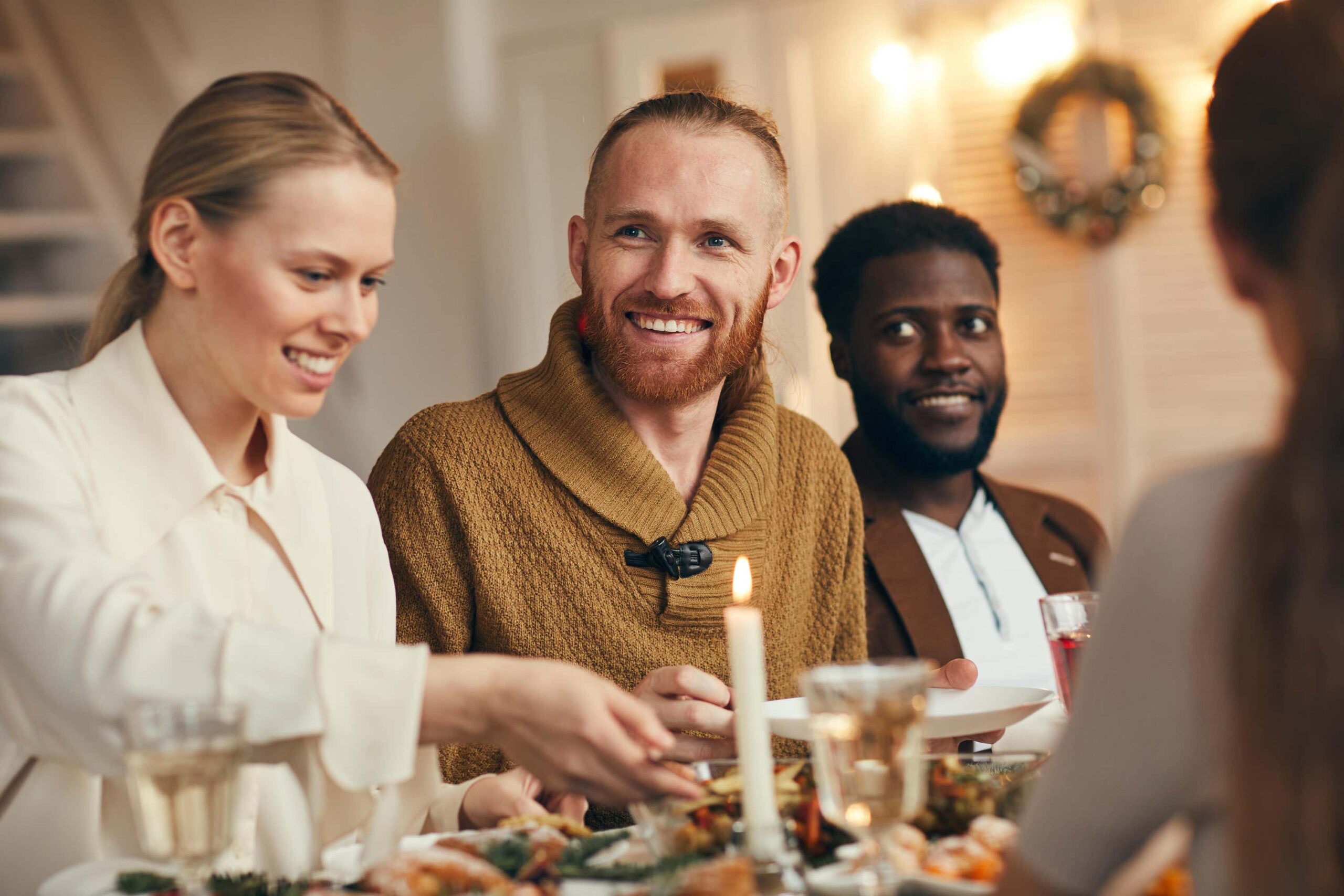
For months we all got our hopes up, believing that the festive period wouldn’t be too badly impacted by the pandemic. But then the Omicron variant arrived, and now we’re set for another Covid Christmas.
The public are being urged to get their booster vaccinations and take lateral flow tests before meeting up with any friends or family – but socialising at the moment still brings with it a number of dilemmas.
We asked psychology experts for their advice on how to handle tricky situations. Here are their answers to some frequently asked questions.
Is it OK to ask friends or family to do a Covid test before meeting up?

“This can be a challenging conversation to have with those who are close to us, and social etiquette has certainly changed over the past 18 months,” says psychologist and wellbeing consultant Lee Chambers. “In my opinion, asking is something that you should do if you feel that it will give you reassurance.”
Dr Audrey Tang, psychologist and author of The Leader’s Guide to Resilience, says that communicating why you want everyone to take a test is key: “If you are struggling, consider making the point about the motivation, such as, ‘We’re asking everyone to do a lateral flow, just to keep each other safe.’ In some cases, you may need to emphasise a ‘call to action’, for example: ‘While we’d love to see you, if your test is positive, please drop in via the Zoom link instead.’”
What should you do if they say they’ve done a test but won’t send proof?

Chambers says: “There are a variety of reasons why they might not send proof, but given how prevalent testing has become in our everyday lives, it’s very much a case of expressing, without judgement or blame, just how quickly popping over the information will make you feel, while giving them the space to feel like they are being heard.”
Dr Tang recommends restating the motivation for providing proof: “Research into motivation suggests that we are more likely to do something when a) we know it works and b) we are aware of the value of the action.
“Again it’s a case of being firm and reminding them of the group’s agreement, for example: ‘I’m really sorry but if you don’t send proof of your test, then please don’t attend, but we’d love to see you via Zoom/WhatsApp’.”
What should you do if someone is pressuring you to meet up even though you’re feeling anxious?
Our experts agree that honesty is the best policy when you’re feeling under pressure.
“If they are good friends, be open and honest – and explain your reasons,” says Dr Tang. “You may want to negotiate another option, for example, you’ll come over before the party.
Also when it comes to decisions and choices, respect works both ways. You cannot expect your friends to say they aren’t going to go out.”
Chambers adds: “The aim is to have them start to understand how you feel, not feel judged for a difference in readiness, and feel they they have been given choice, rather than dictated to.”
Is it OK to revoke an invite for someone if you think they’re being less cautious than you?
“This is difficult territory to step into, especially if the invite has already been accepted,” says Chambers.
“Ultimately, it’s another conversation where you have to express how you feel, not confer judgement for their actions, and help them move to a place where they are willing to feel supported in keeping everyone safe.”
Christmas gatherings can be easily influenced by family politics at the best of times, so you may need to “expect some sort of fallout,” says Dr Tang.
“It’s about knowing why you are making your choices and being able to explain your reasons, while not being drawn into an argument.”
What should you do if people aren’t respectful of your decisions?
If you planned to meet outside but arrive and find the group has relocated indoors, or you have a friend who insists on hugging every time you meet or inviting more people to what you thought was a solo catch up, you might feel your decisions are not being respected.
“First of all, make sure that you’re not treating people as mind readers,” says Dr Tang. “If you haven’t said ‘please don’t hug me’ and the last time you met you were tactile, then it’s not their fault that they didn’t know your internal world had shifted. Make your desires clear.”
When communicating what you want, be objective and empathetic, Chambers advises: “The best way to think of it is like delivering a kind and gentle ‘No’, while making them still feel like they are respected and have control.
For example, you might say, ‘I realise that you are comfortable with meeting inside’. This shows you identify how they feel, without labelling their perception as negative or trying to decode why they feel that way.”





